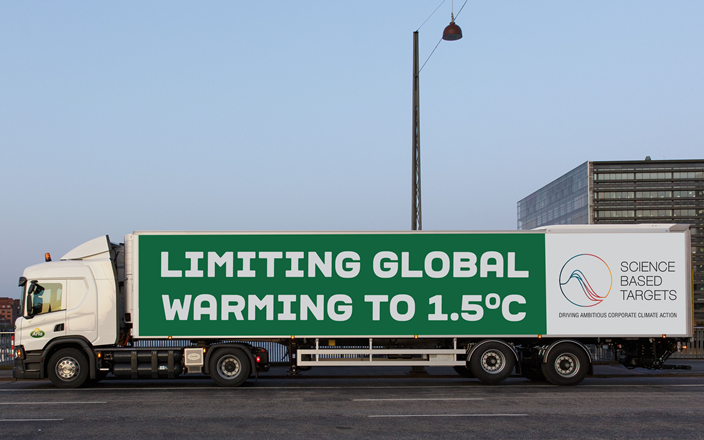With plans to convert to fossil free trucks, green electricity and low-energy solutions, farmer-owned dairy group, Arla Foods is scaling up its climate target for operations from 30 to 63 per cent. The new target has been approved by the Science Based Targets initiative as consistent with reductions required to keep global warming to 1.5°C.
After having implemented Climate Checks on almost 8,000 Arla farms to accelerate the decarbonisation at farm level, Arla is now increasing its measures in production and logistics to further combat climate change.
With a new target to cut 63 per cent of the greenhouse gas emissions from production, logistics and energy usage by 2030 from a 2015 base year, Arla is doubling its previous 30 per cent reduction goal. Between 2015 and 2020 Arla has reduced its emissions from operations by 24 per cent and the next steps include a transition to fossil free fuels for the full fleet of milk tankers and distribution trucks and a shift to renewable electricity and low-energy solutions across the Company’s production sites and offices.
The new 2030 target has been approved by the Science Based Targets initiative (SBTi) as consistent with reductions required in scopes 1 and 2 to keep warming to 1.5°C, the most ambitious goal of the Paris Agreement. Until now, Arla is one of only 61 food and beverage processors globally and one of the first farmer-owned dairy cooperatives in the world to have a 1.5°C target approved by SBTi.
Said Peder Tuborgh, CEO, Arla Foods: “We are very pleased that the Science Based Target Initiative has deemed our target in line with what the latest climate science says is needed to meet the goals of the Paris Agreement. Dairy is widely enjoyed across the world and demand continues to grow, not least because of its richness in protein and calcium, its versatility and affordability. Together with our farmer owners, we have a tremendous appetite for leading the decarbonisation of dairy, so that people can continue to trust and enjoy dairy products.”
Whilst the SBTi has classified Arla’s new 63 per cent target for scopes 1 and 2 as consistent with a 1.5°C trajectory, the existing 30 per cent target for scope 3, covering among other things the Arla farms, continues to meet the SBTi’s criteria for ambitious value chain goals in line with current best practice.
The SBTi is expected to launch a new sector guidance in 2022 for Forest, Land and Agriculture with more detailed requirements for setting science-based targets than previously available for companies in land-intensive sectors.
Added Hanne Søndergaard, Executive Vice President with responsibility of Agriculture and Sustainability, Arla Foods: “Our ambition is to be in line with a 1.5°C trajectory in all three scopes of our value chain when it becomes possible. We will therefore review the SBTi’s new sector guidance when it’s released to see whether any changes to our current plans will be required.” For more visit arla.com



